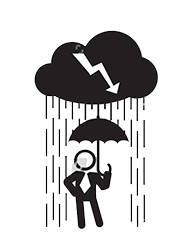 So Covid-19 came from nowhere – or did it? One thing the pandemic has shown is that every business needs to have a plan for the unexpected, and most of all for the situations that could put your very existence into question.
So Covid-19 came from nowhere – or did it? One thing the pandemic has shown is that every business needs to have a plan for the unexpected, and most of all for the situations that could put your very existence into question.
Be prepared
The first step in any crisis management plan is risk assessment. According to specialist risk consultancy Control Risks: “A key component of being ready for crises and incidents is the clear identification, understanding and management of the risks that pose the greatest threat to your organisation’s operations, reputation and brand.” That’s not a one-off exercise, but it involves constantly monitoring the external environment for new and emerging issues. For each one, you need to consider the impact it could have on the organisation and whether that risk can be avoided.
Understand its nature
There are different types of crisis, and each might require a particular strategy to deal with it. A natural disaster – such as flood, earthquake or even a pandemic – cannot necessarily be avoided; whereas management misconduct certainly can if you have the right controls in place. Technological failure and malevolent attacks against your organisation are two other different types of crisis you should be ready for.
Make a business continuity plan
This is your Plan B, tailored for each of the significant risks you’ve identified. Your aim is to keep your business going and protect its reputation; the plan tells key individuals how to respond when the worst happens – so you’re not having to make up your response on the spot and everybody knows what to do. According to Lloyds Bank, a contingency plan can help you identify the threat, reduce the impact of incidents, minimise downtime and improve recovery time. “It’s worth knowing that more than 40% of businesses affected by the Manchester Arena bombing went out of business never to return,” the bank points out.
Rehearse
To find out how your team would respond in a crisis, and any unexpected challenges that would arise, carry out a simulation of the real thing. The Business Continuity Institute has an online incident simulation game – BC24 – which creates a fictitious scenario and lets you put your key directors and managers to the test, with feedback delivered on your performance.
Build an early warning system
Signals detection is about looking for the signs that a crisis could be imminent. In practice, it means that you have to identify the information sources that could alert you to a crisis and ensure they are being monitored and that the information gathered is being analysed or evaluated in order to sound the alarm.
Keep the show on the road
After addressing the root cause of the crisis, the priority is business continuity – putting your plan into action. That could mean taking extraordinary action – such as setting up an emergency operations centre or getting staff to work from home – or it could mean taking radical cost-cutting steps to stave off financial collapse.
Take the lead
During any crisis, it is the role of leadership to lead and be highly visible. Leaders must not hide but appear frequently in interviews and other broadcasts. “Particularly during a crisis, employees have a need to hear from their leaders frequently. When leaders appear calm, concerned, knowledgeable and in charge, workers feel encouraged and are more likely to have confidence that things are under control and will be fine,” says Gene Klann, author of the US Center for Creative Leadership’s book Crisis Leadership.
Transparency
If there are issues of safety at stake – for example, in the case of a major product recall – your key challenge is re-establishing the confidence and trust of stakeholders, including your customers and your own employees. “When information regarding what is happening is scarce or non-existent, people revert to gossip and rumours and to making stuff up,” Klann says. “Invariably, what they make up will be worse than reality, no matter how bad reality is.”